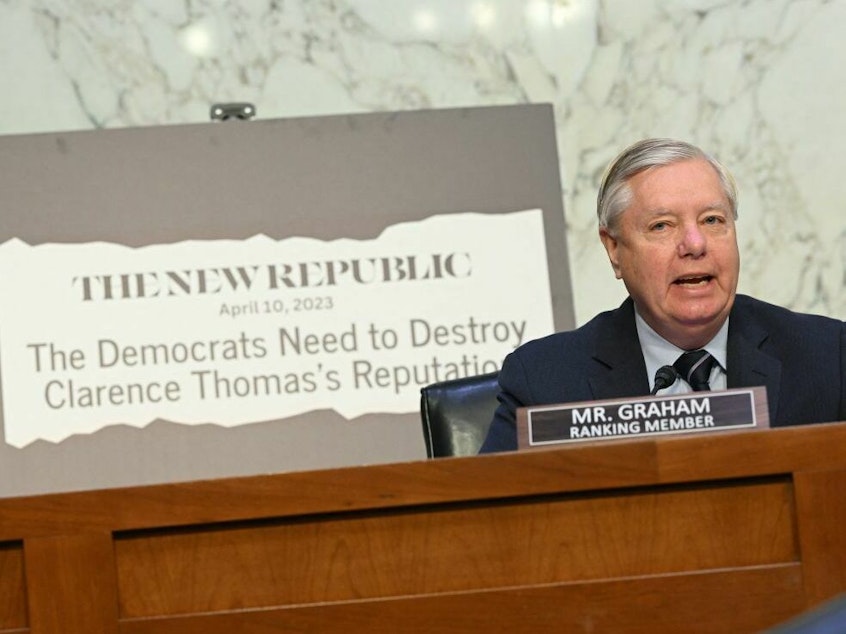Dueling narratives at the Senate hearing on the Supreme Court

At Tuesday's Senate Judiciary Committee hearing, the Democrats' avowed purpose was to get the Supreme Court to write a code of conduct for itself, or in the absence of that, for Congress to write one. The Republicans avowed purpose was quite different.
The impetus for the hearing was the fact that in recent weeks and months, there have been a series of news reports about Supreme Court ethics. One category has alleged outright violations of financial disclosure rules that apply to all federal judges, including Supreme Court justices. The other category of story has focused on the activities of various justices: activities that range from the completely appropriate--like four of the conservative justices teaching at George Mason University-- to activities that are arguably inappropriate under the judicial code of conduct.
Therein lies the rub. While the Supreme Court has for 32 years acknowledged that it is bound by the financial disclosure rules under federal law, the court has explicitly said it is not bound by the rest of the code of judicial conduct. And that was what the hearing was ostensibly about.
"It is critical to our democracy that the American people have confidence that judges cannot be bought or influenced, and that they are serving the public interest — not their own personal interest," committee Chairman Dick Durbin, D-Ill., said in opening the hearing.
The problem was that the Republicans viewed the subject of Supreme Court ethics as an attack on the new conservative Supreme Court supermajority, an attack by Democrats, aided and abetted by the "liberal media."
Sponsored
"We can talk about ethics, and that's great, but we're also going to talk about today the concentrated effort by the left to delegitimize this court, and to cherry-pick examples to make a point," said ranking Republican Lindsey Graham, R-S.C.
And from there on in, the hearing was off to the races, with the Republicans accusing the Democrats of everything from having a double standard on ethics, what Graham called "selective outrage," to accusations that the Democrats are actually encouraging assassination attempts against conservative justices. So organized was the GOP anger, that they actually played video from Justice Clarence Thomas' confirmation hearing 32 years ago.
It was such an aggressive display that the Democrats seemed kind of shell-shocked, as they tried to keep the focus on the subject of a Supreme Court ethics code.
There were, of course no Supreme Court justices at the witness table. Chief Justice John Roberts, citing concerns about "separation of powers and judicial independence," last week declined Durbin's offer to testify. So the committee was left with less high-profile witnesses albeit ones with considerable expertise.
Some, like Michael Mukasey, a former federal judge who served briefly as attorney general in the George W. Bush administration, basically said Congress is powerless to act, but others disagreed. University of Virginia law professor Amanda Frost, who specializes in constitutional law and judicial ethics, distinguished between Congress' power to write laws for the administration and operation of the Supreme Court, including a code of ethics, and its lack of power to interfere in the court's judicial decision-making.
Sponsored
Frost repeatedly invoked the views of the Founders in legislating on this subject.
"For over 230 years, and for as long as the Supreme Court has existed, Congress has regulated vital aspects of its operation, including its ethical obligations," she said.
Jeremy Fogel, a former federal judge who served as chairman of the financial disclosure committee of the U.S. Judicial Conference was quietly emphatic about the need for the court itself to have some internal mechanism for checking ethical obligations.
Under the current system, he said, ethical questions are "kind of a black box."
The justices "have a lot of sources and rules that they follow," he said, "but no one really knows what they are." [Copyright 2023 NPR]



